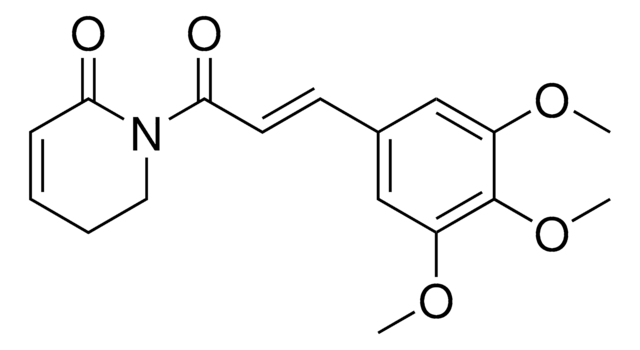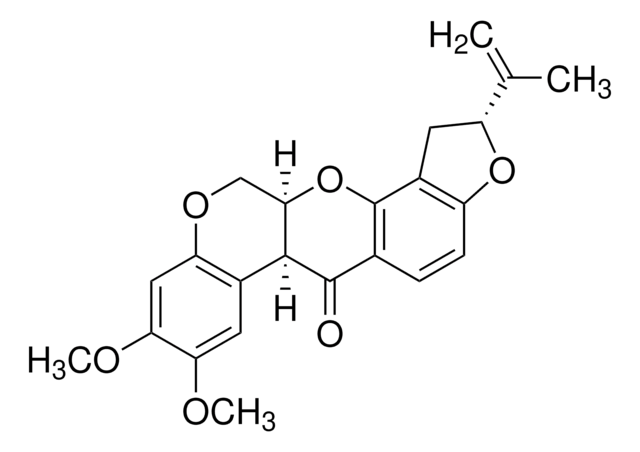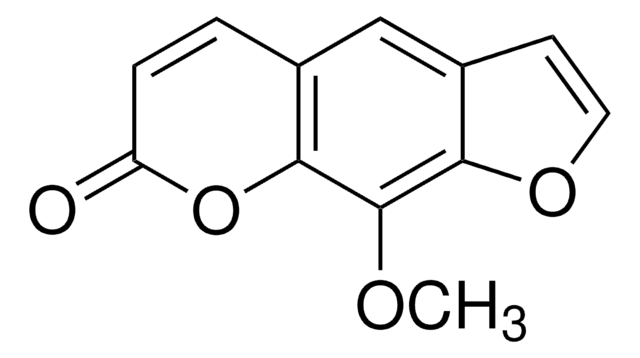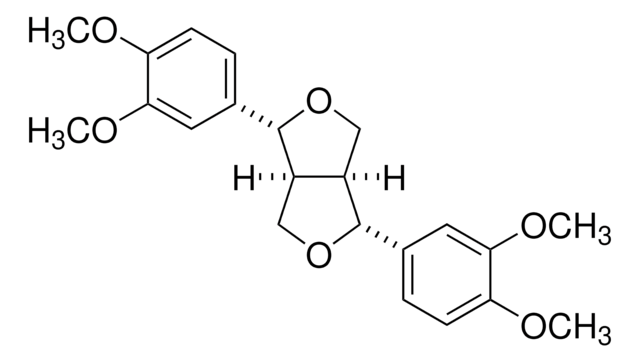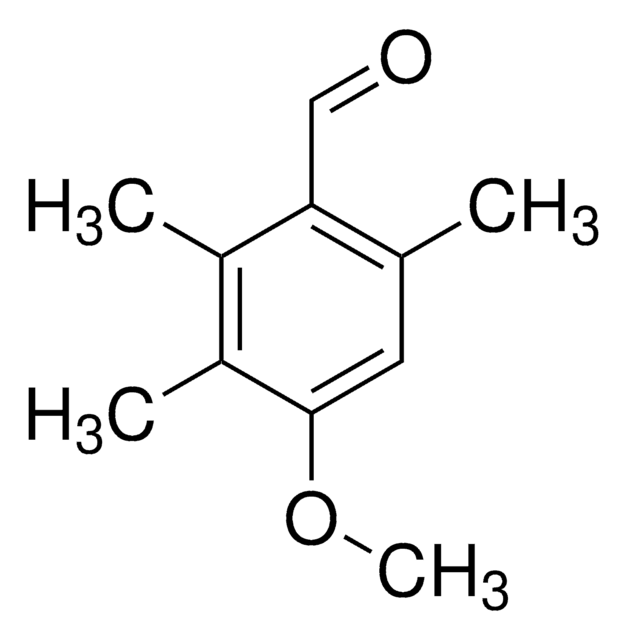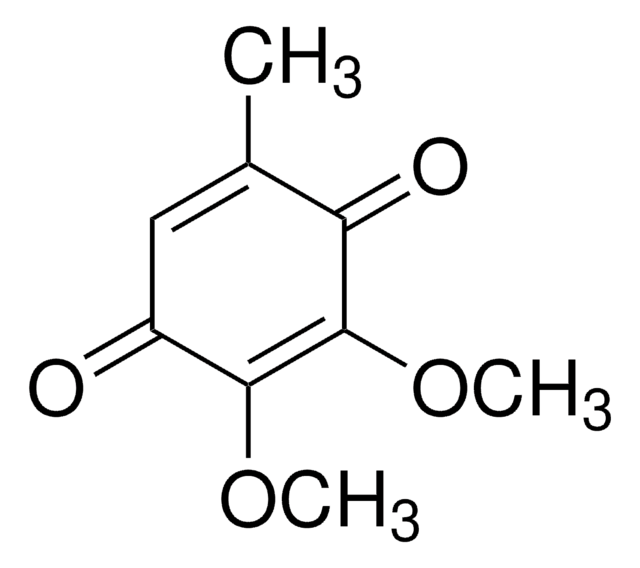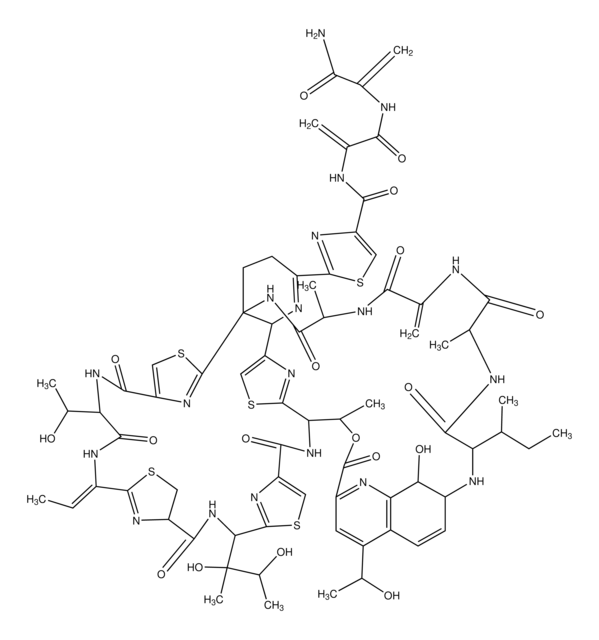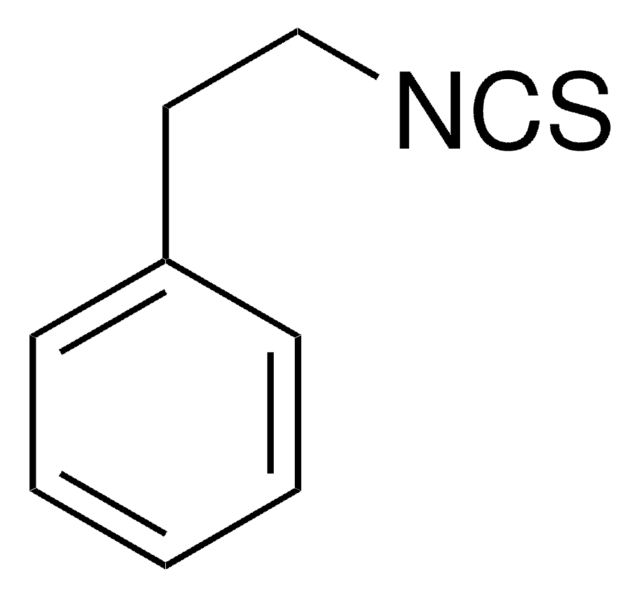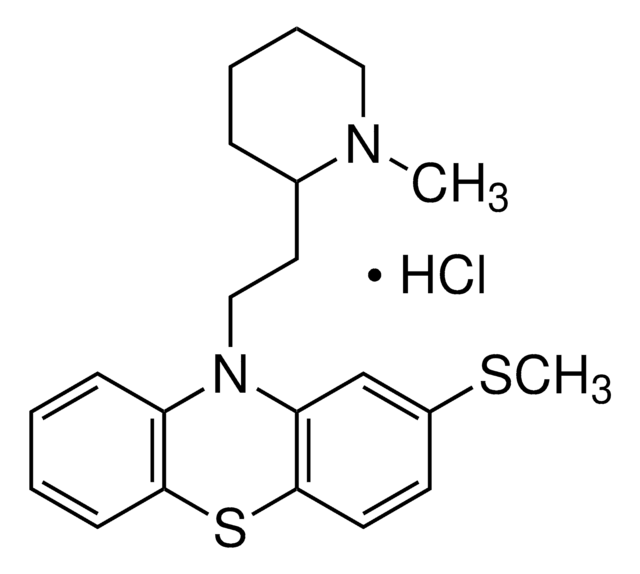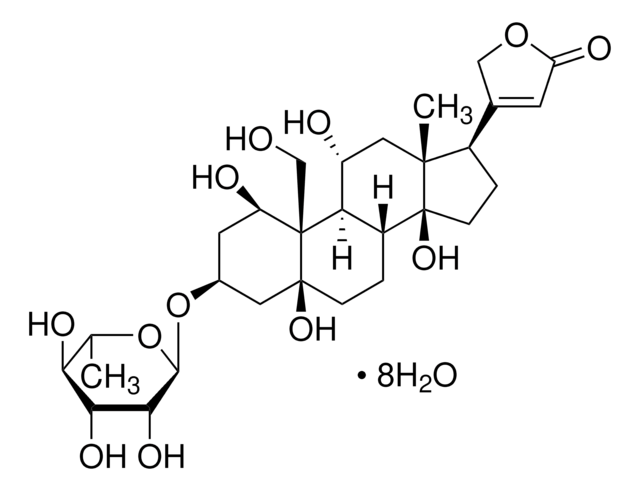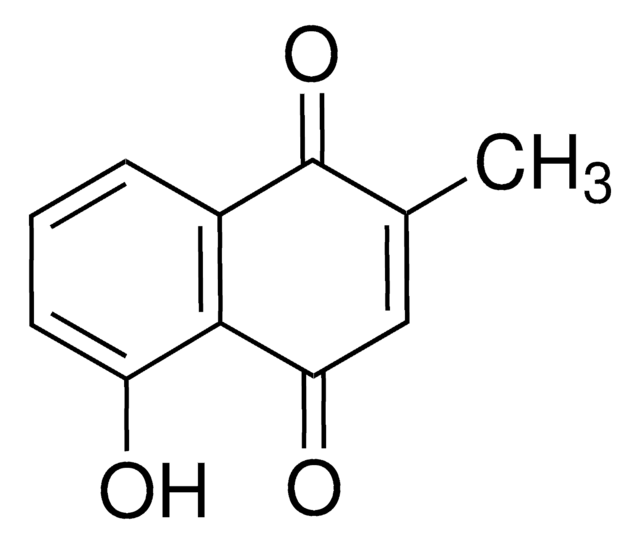SML0221
Piperlongumine
≥97% (HPLC)
Synonym(s):
5,6-Dihydro-1-(1-oxo-3-[3,4,5-trimethoxyphenyl]-trans-2-propenyl)-2[1H]-pyridinone, 5,6-Dihydro-1-[(2E)-1-oxo-3-(3,4,5-trimethoxyphenyl)-2-propen-1-yl]-2(1H)-Pyridinone, Piplartin, Piplartine
About This Item
Recommended Products
Quality Level
assay
≥97% (HPLC)
form
powder
color
white to beige
solubility
DMSO: ≥5 mg/mL at warmed to 60 °C
storage temp.
2-8°C
SMILES string
COc1cc(\C=C\C(=O)N2CCC=CC2=O)cc(OC)c1OC
InChI
1S/C17H19NO5/c1-21-13-10-12(11-14(22-2)17(13)23-3)7-8-16(20)18-9-5-4-6-15(18)19/h4,6-8,10-11H,5,9H2,1-3H3/b8-7+
InChI key
VABYUUZNAVQNPG-BQYQJAHWSA-N
Looking for similar products? Visit Product Comparison Guide
General description
Application
- as a pro-oxidant drug to treat HepG2 cells expressing zinc finger protein (ZNF)32
- to test its anti-neuroinflammatory effects in BV2 microglial cells
- to test its inhibitory effect on human gastric cancer cell lines
Biochem/physiol Actions
signalword
Warning
hcodes
Hazard Classifications
Acute Tox. 4 Oral
Storage Class
11 - Combustible Solids
wgk_germany
WGK 3
flash_point_f
Not applicable
flash_point_c
Not applicable
Certificates of Analysis (COA)
Search for Certificates of Analysis (COA) by entering the products Lot/Batch Number. Lot and Batch Numbers can be found on a product’s label following the words ‘Lot’ or ‘Batch’.
Already Own This Product?
Find documentation for the products that you have recently purchased in the Document Library.
Customers Also Viewed
Our team of scientists has experience in all areas of research including Life Science, Material Science, Chemical Synthesis, Chromatography, Analytical and many others.
Contact Technical Service